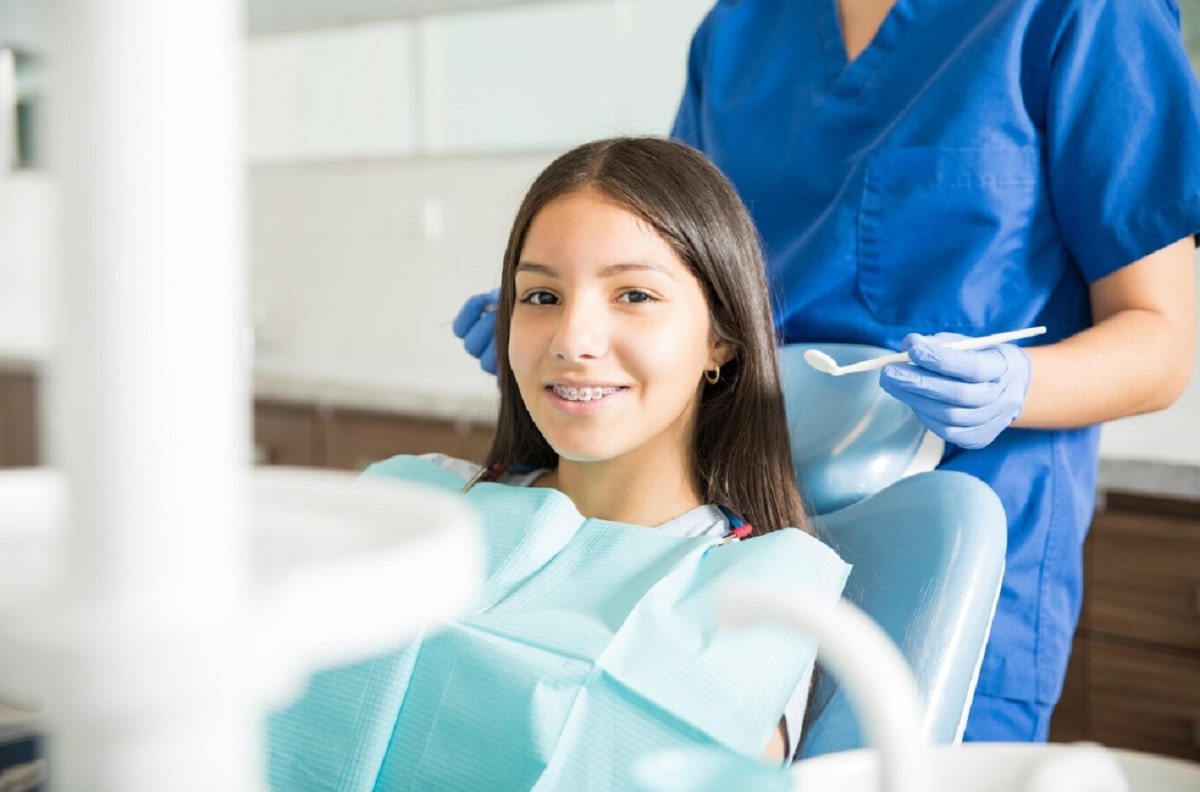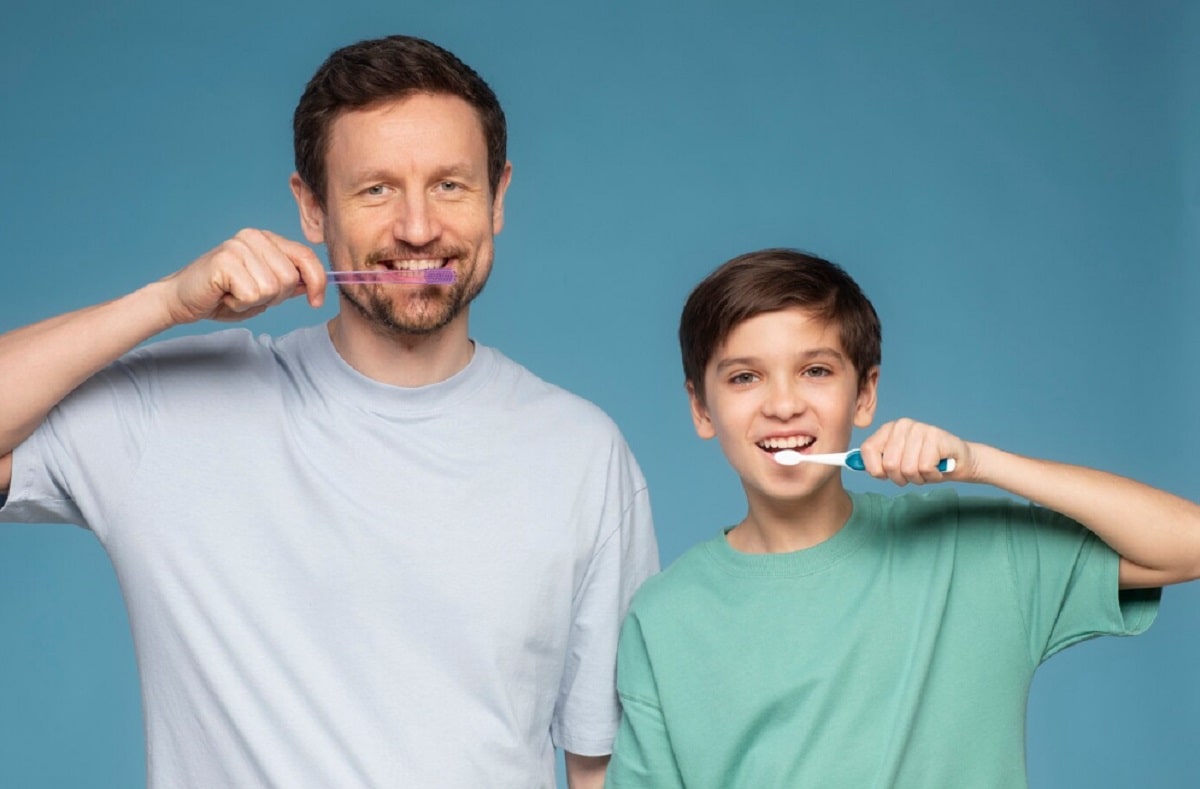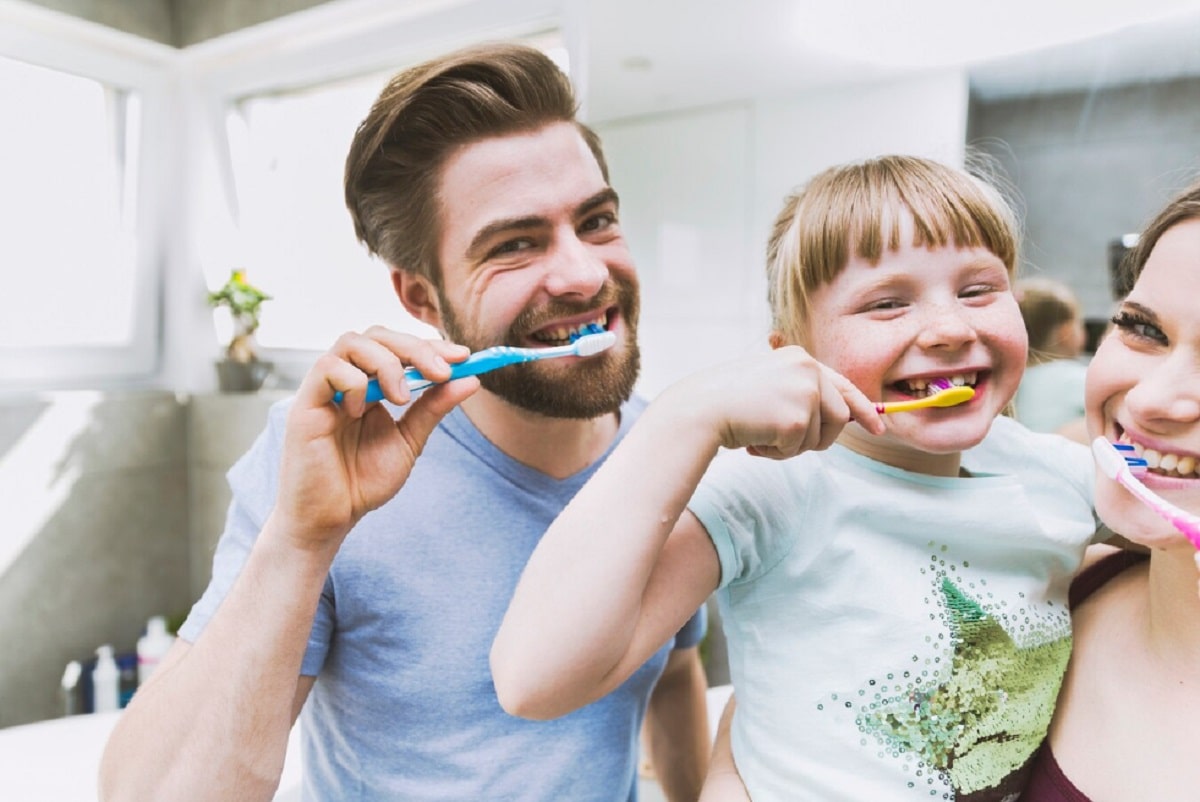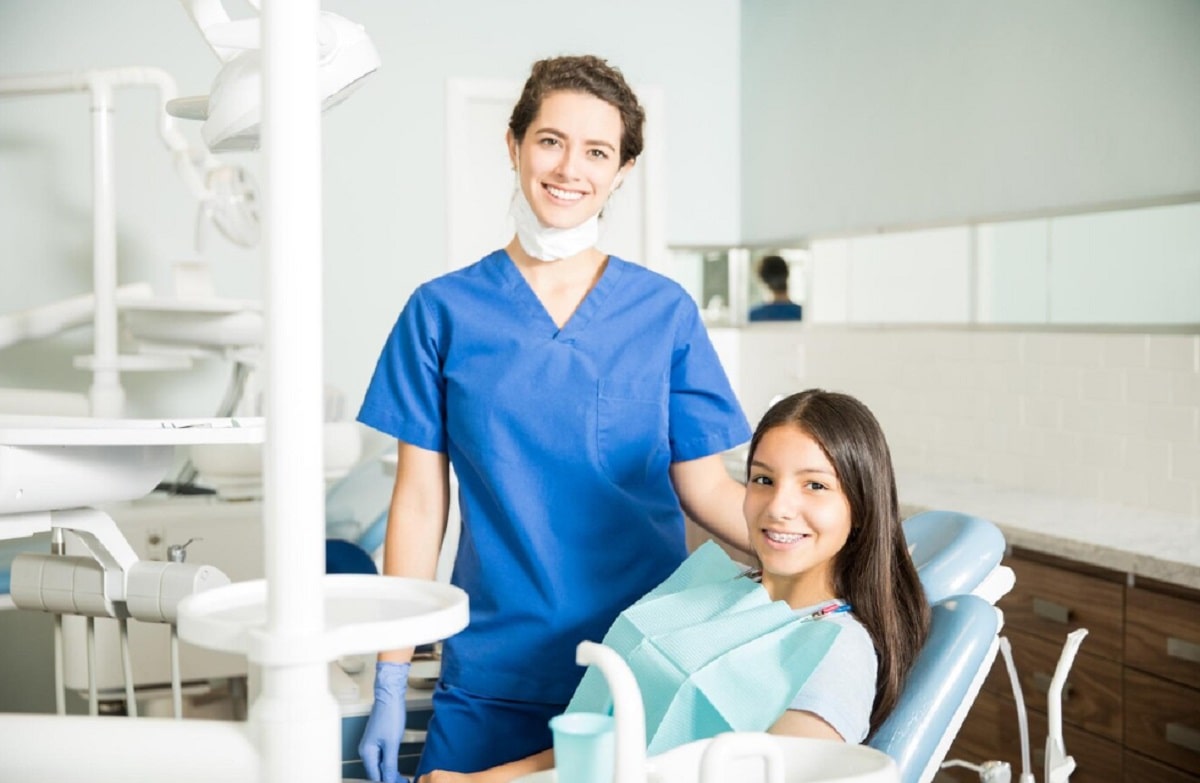Oral and dental health in children begins even before the baby is born. If the mother has paid attention to her nutrition during pregnancy, particularly by consuming foods rich in calcium, the child’s teeth and gums will be healthy.
Especially with the transition to solid foods, oral and dental health in children becomes increasingly important. During this period, also referred to as infancy, parents have a significant responsibility. Certain care must be taken as the teeth emerge. Here are some things you should know about oral and dental health in children.
What is Oral and Dental Health in Children?
It refers to the period from the first days of a newborn baby up to the adolescence period (up to 15-16 years old). During this time, it is expected that no problems will arise in the mouth, teeth, and cheeks. Having a healthy structure will also be reassuring for parents.
Oral and dental health in children should be approached from different perspectives. This is because oral and dental health in adults is pursued in a conscious manner. Being aware of the situation will make things easier. However, since children will act based on information they are learning for the first time, parents will have a significant responsibility.

How to Care for Babies’ Oral Hygiene?
Babies typically start teething between 6-12 months. Cleaning should begin as soon as the teeth emerge. It is often observed that parents neglect their baby’s first teeth with the thought that they will eventually fall out. However, it is essential to pay as much attention to babies’ dental health as to that of adults.
Ensuring the oral hygiene of the baby is crucial. After feeding, the baby’s teeth can be gently cleaned with a clean, damp piece of cloth or a soft porous cloth. Additionally, you can also clean their teeth with a silicone finger brush designed for babies.
During the period when the teeth are coming in, you can help your baby feel more comfortable. Particularly for a soothing experience during this time, you can seek help from a dentist. Avoiding improper interventions will prevent problems in the future regarding oral and dental health in children.
How Can Parents Teach Their Children to Brush Their Teeth?
It is essential to create an environment for developing the hand skills required to hold and maneuver the toothbrush in the mouth. After the age of one, it would be appropriate for parents to give their babies a toothbrush. A baby who can hold a spoon can also hold a toothbrush. Allowing the baby to practice will help them develop this physical skill.
Especially for establishing oral and dental health in children, brushing teeth is essential. It is important to approach this from a psychological perspective as well. Here are some methods you can use:
| Methods | Descriptions |
| Praising Activities | Children enjoy rewards due to their age. You can create a fun chart. Stick a star or a sticker after each brushing session. Reward them when they reach a certain number. This method is especially recommended by psychology experts for promoting oral and dental health in children. |
| Be a Role Model | Learning in babies and children often occurs through modeling. Remember that if you want to instill oral and dental health habits in children, you, as parents, must first practice them yourself. |
| Read Example Stories and Tales | You can utilize stories and fairy tales to also develop the reading and listening habit. A story about a rabbit or a bear who brushes its teeth and pays attention to it will capture their interest, and they will want to repeat it. |
| Utilize Videos | Visual elements will be more effective for oral and dental health in children. At this stage, it will be beneficial to utilize videos, such as cartoons or animations. |

What Can Be Done to Reinforce the Habit of Brushing Teeth?
Children, who enjoy imitating adults and learn through this method, are also quite curious about toothpaste. However, it is not suitable for a child to use toothpaste before the age of two. After the age of two, no more than a pea-sized amount of toothpaste can be applied to the toothbrush. The toothpaste we use is not suitable for children due to the fluoride it contains.
You can find fluoride-free children’s toothpaste in pharmacies and large supermarkets. Additionally, asking your child to show their teeth while brushing, and praising the child for their dental hygiene when they do so will reinforce the behavior. Stand in front of the bathroom mirror and brush your teeth together, then show each other your teeth and smile. If a baby is born healthy due to their parent’s healthy habits before birth, and if the parent supports them and instills the skill of brushing teeth early, providing a good example for them, the child’s teeth will be healthy.
Even if no health problems are observed, it is necessary for children to see an eye doctor by the age of two. Similarly, when children reach the age of two, it is essential for them to be examined by a pediatric dentistry specialist and an orthodontic specialist to prevent potential health issues in the future. Additionally, even if no health problems are observed in children, having them examined by a pediatric dentist and an orthodontist between the ages of 6-7 will be beneficial for preventive treatment.

What Happens When Oral and Dental Health in Children Is Neglected?
It is essential to create an environment for developing the hand skills required to hold and maneuver the toothbrush in the mouth. After the age of one, it would be appropriate for parents to give their babies a toothbrush. A baby who can hold a spoon can also hold a toothbrush. Allowing the baby to practice will help them develop this physical skill.
If you do not give sufficient importance to oral and dental health in children, you may face certain issues. Therefore, you should take action by delving into the details of oral and dental health in children from an early age.
1 – Teeth
When insufficient attention is paid to oral and dental hygiene in children, health problems will arise. Especially if a child frequently consumes unhealthy snacks like sugar and chocolate, the decay of their teeth will accelerate. As a result, teeth may fall out early or decay and be lost prematurely. Lost or decayed teeth create gaps in the mouth. The structure of the mouth will respond to fill these gaps to ensure the functional use of the remaining teeth.
The gaps left by lost teeth are filled by the movement of neighboring teeth into these spaces. This leaves no room for the permanent teeth that will come later. The teeth expected to emerge later may remain impacted in the gums. Due to lack of space, they may erupt crookedly, leading to a disorganized, crooked, or missing alignment of teeth in the mouth.
2 – Jaw
Additionally, the gaps in the mouth prevent the jaw from reaching the necessary width. When the jaw is narrow, the teeth that emerge later in life may not fit into the jaw and may overlap. Teeth can become crowded and misaligned. This causes orthodontic issues that begin in childhood. Therefore, it is important to invest in oral and dental health from a young age.

3 – Future Oral and Dental Health Problems in Children
Oral and dental health in children is crucial to eliminate potential problems that may arise later. If proper care is not taken, they will face issues in adulthood. It is beneficial to be cautious to ensure that not only the primary teeth but also the permanent teeth are healthy.
Frequently Asked Questions
When should children start brushing their teeth?
Brushing should begin as soon as children’s first teeth start to emerge. This usually occurs between 6-12 months. Parents should encourage their children to brush together to instill this habit at an early age.
What foods should be avoided for children's dental health?
Sugary snacks, carbonated drinks, and acidic foods can lead to tooth decay. It is recommended that children prefer healthy snacks, vegetables, and dairy products.
When should children see a dentist?
It is generally recommended to take children to the dentist after their first teeth come in, usually around the age of 1. Regular check-ups should be done every six months thereafter.
How can tooth decay in children be prevented?
To prevent tooth decay, regular brushing, flossing, and maintaining a healthy diet are essential. Additionally, it is advised that children use fluoride-containing toothpaste for their teeth.
How can parents instill the habit of brushing teeth in their children?
Parents should model the habit of brushing teeth for their children and support the process with fun activities and rewards. Additionally, organizing brushing sessions together can also be effective.